English Department News
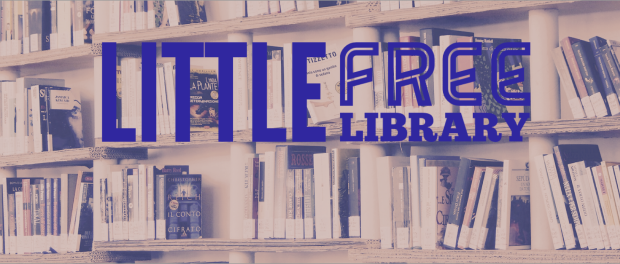
New Little Free Library for English Majors
Textbooks just got a little more accessible in the English department! Susan Bimbo Nazzarro has collaborated with English Department faculty to create a Little Free Library for all English majors. Beginning in the Fall of 2019, free books for English department courses will be available in the English Student Lounge. Students can borrow and donate any books used in English courses. Donations should be marked with the assigning professor and course name on the library card in the lounge. Questions can be directed to snazz661@kutztown.edu

Students engage real world audiences
Students in Women’s and Gender Theory are working on writing for a public audience. After reading source material that is complex and geared toward an academic audience, undergraduate and graduate students then write blog posts meant for a public audience (their audience is their newsfeed) to show how theory is relevant to daily life and experience. By learning how to write for a public audience, students gain experience in engaging readers and work on the craft of blogging as a marketable skill to show future employers.

Jennings takes top prize at LVAIC
2018 English graduate and current M.A. candidate, Ariel Jennings, was recently awarded the “Best Paper” prize at the Lehigh Valley Association of Independent Colleges Women & Gender Studies Conference. She presented her paper “Bitches Be Crazy: Searching for Diversity in the Domestic Thriller.” For more information on LVAIC and the conference visit https://lvaic.org/event/women-and-gender-studies-conference/



Revised English programs
The Kutztown University English department has undergone some improvements starting next semester. Faculty from the English department
New ENG 390: Internship requirement added to the English program
English majors are now joining their Professional Writing compatriots in a professional semester, where they take ENG 390: Internship. ENG 390 is a 3 to 9 credit course where students seek and work for an internship of their choice. Professional Writing majors, as in past semesters, take these internship credits too but are now joined by English program majors. These internship experiences are intended to give crucial professionalization for future graduates, preparing them for a career awaiting after graduation.
On top of the added 390: Internship class requirement, English students also take 380: Proseminar. This Proseminar is taken concurrently with the 390: Internship. To help guide them through their internship experience, the Proseminar engages them, that they may get the most out of their internships.
Class changes in Professional Writing
As for Professional Writing students, their program has added courses in both Visual Communication and Critical Reading and Analysis. Considering the increasing digitization of the writing field, these courses are becoming ever more relevant and crucial for success.
Revised English program course requirements
Besides the focus on professionalization, faculty designed a program for English students that affords them more freedom in their class selection. Besides the required ENG 100: Reading and Writing in the Professions, ENG 380 Proseminar, and ENG 390: Internship, English majors can now almost entirely choose the remaining 33 credits, via English electives. They take three courses at the 100 level, exploring Style, Design, and Genre; three courses at the 200 level, investigating Histories and Technologies of Writing; and five courses at the 300 level, thinking carefully about Cultures and Context.
Of the 33 elective credits students choose, some courses must satisfy the Diversity and History requirements. One class must engage the concept of diversity. They also must take three courses that give consideration to either the history of the English language, the various literature, or the field of English studies (one of which must be at the 300 level). A full list of classes detailing the Diversity and History requirements will be available during registration periods.
Students not only choose from any 33 English credits, but they also choose from 36 concomitant credits. Concomitants are courses from any major, making this an ideal place to fit in a minor. The English department highly recommends students select courses that will amount to a minor that works with their special talents and interests. With this change, students who love psychology, public relations, or business can explore these topics and more, while attaining a minor.
How these changes help students and faculty
Faculty at the English department carefully designed these changes to best accommodate the students. Though the former Bachelor of Arts program was successful in its own right, experienced faculty saw room to further enhance it and, consequently, students academic careers. They saw that they could simplify the BA, while simultaneously honing student’s skills, talents, and passions. With this simplicity, students have more control to chart their own route, opportunities to follow their
This revised program both enhances student’s academic pursuits and prepares them for the world beyond the classroom. The added professional classes grant them exposure to real-world scenarios. These additions show students that what they learn in the English program does have a real-world translation, dispelling the notion that English undergraduates can’t find a job. The faculty want students to know that they can find a job—by getting a job—while simultaneously earning their credits.
With these changes, there come some new responsibilities. Students will find it more important than ever to form consistent, strong, and lasting relationships with their academic advisors and faculty mentors. This, of course, works in the student and faculty’s favor, as both will better communicate and cooperate, increasing success; the faculty guides students towards their future careers and interests while studying at KU.
The faculty are also excited to see their students grow at a more organized and accumulative rate. Because the classes progress from levels 100 to 300, students apply their material previously learned to later levels by increments. This more measured learning grants them a better sense of progression; furthermore, faculty will be aided, as they can better match students to their class material.
Overall, there are plenty of reasons to be excited about the improved English and Professional Writing programs. With new classes focusing on professionalization and more personalized class structure, English students can look forward to an enhanced experience at KU.
- Thomas Heasley
Alumnus Interview: Paul Walsh
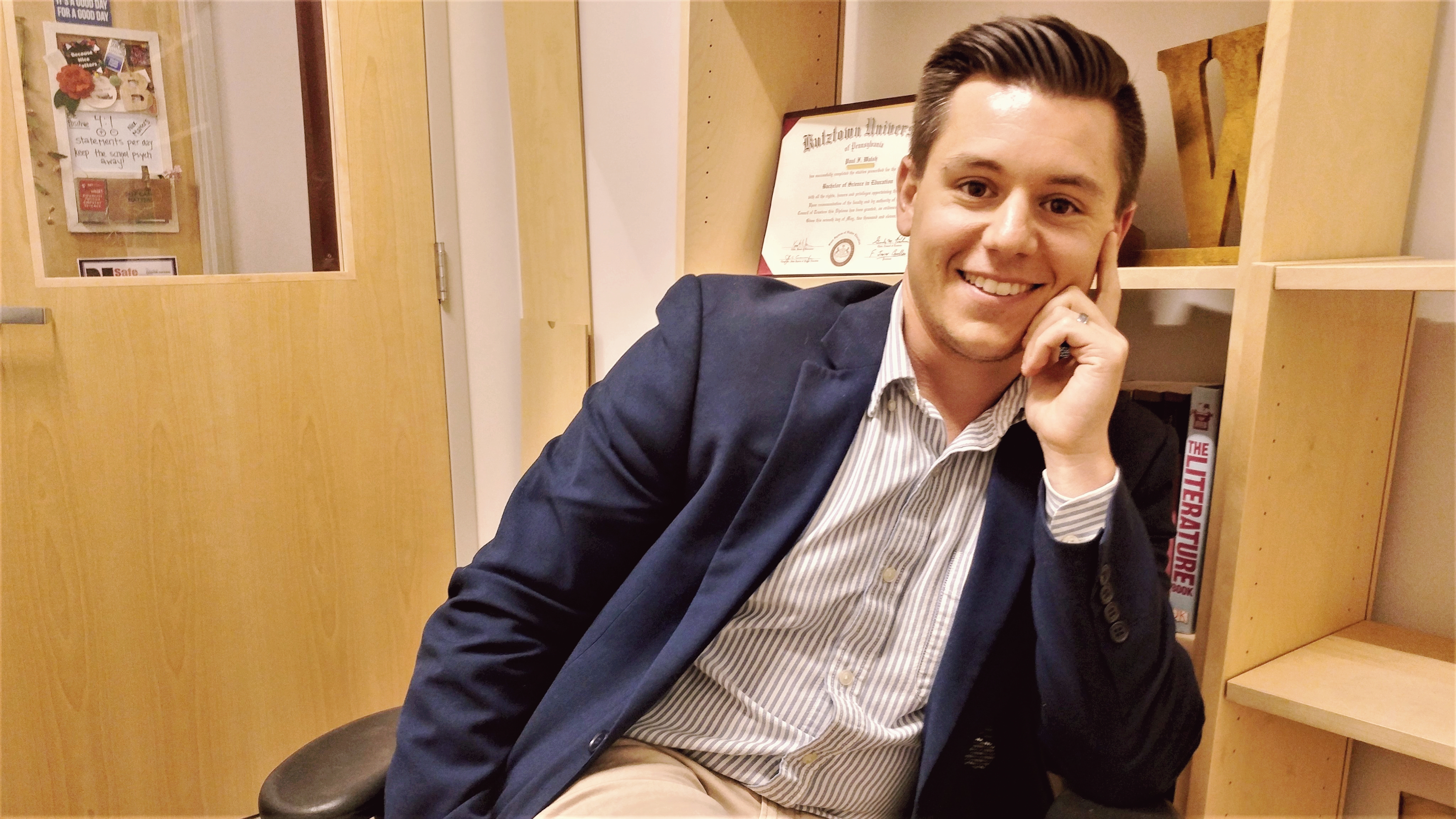
Teacher, author, and KU alumnus, Paul Walsh earned his undergraduate degree in Secondary Education (2011) and his Master’s in English Literature (2018), and he’s returning to KU this fall for his Doctorate in Education. He is the Artistic Director of Literary Arts at the Lehigh Valley Charter High School for the Arts. Behind the scenes, he’s also a caring father and husband, a passionate baseball coach, and a lover of literature and writing. Speaking of writing, he’s excited to share his new novel, Lemonade, releasing Aug 5th.
In 2007, Walsh, a Bethlehem local, began his education at KU. His history with the school has been an inspiring and rewarding path: a place where he could prosper and cultivate his long-embedded desire to teach.
“I knew that I wanted to be an English teacher since seventh grade. In middle school, I had an English teacher that fundamentally changed my life. Since then I’ve known that I wanted to do for others what she did for me. And KU has such a rich history rooted in education. So, after a summer visit, it was decided.”
He continued, “I was blown away by the dedication of the faculty in the English department too, and between the English and Education professors, they’ve impacted my ability to teach and convey content to my students.”
His professors, always available after hours to talk about papers, classes, or anything, were a template for his future teaching. Walsh was not only inspired by the content they taught, but also by the examples they set as great teachers.
“There are too many professors to name. Dr. Linda Cullum taught me so much, not only about assessing student writing but about being a compassionate and kind teacher. I took so much from Dr. Herr’s passionate literature lectures in grad school. My master’s thesis director, Dr. Patty Pytleski, showed me constant support throughout the thesis writing process, despite my untraditional approach. Dr. Shaw, Dr. Ronan, and Dr. Carissa Pokorny-Golden were also highly influential. I was always amazed at the level of quality of the English and Education faculty.”
After earning his undergraduate, Walsh worked as a substitute teacher for a few months. He then received a long-term sub job in December 2011, at Lehigh Valley Charter High School for the Arts, in Bethlehem. By the year’s end, the employee he was covering decided not to return, and Walsh was given the position. So, at 22 years old, he secured a full-time position teaching all AP English courses: AP Language, AP Literature, and honors lit courses for the next four years. Finally, he earned the Artistic Director of Literary Arts position, which he occupies today.
“As Artistic Director, initially, I was half teaching the English department and
While working as a teacher, he studied his master’s, one class at a time, over a five-year span. He said, “I think my classes became so much stronger, both on a pedagogical and content level because I was going to school at the same time.”
But his education doesn’t end there. Next fall he's returning to KU for his Education Doctorate in Transformational Teaching and Learning.
“I always thought that I would go back for a Ph.D. in English, but as I secured this full time teaching position, it didn't make much sense. Also, as I started teaching, I realized, though I’m happy about my master’s and love English, I think I have equally, if not more of, a passion for teaching, above all things. After discovering this doctorate, I knew it was a perfect match for me.”
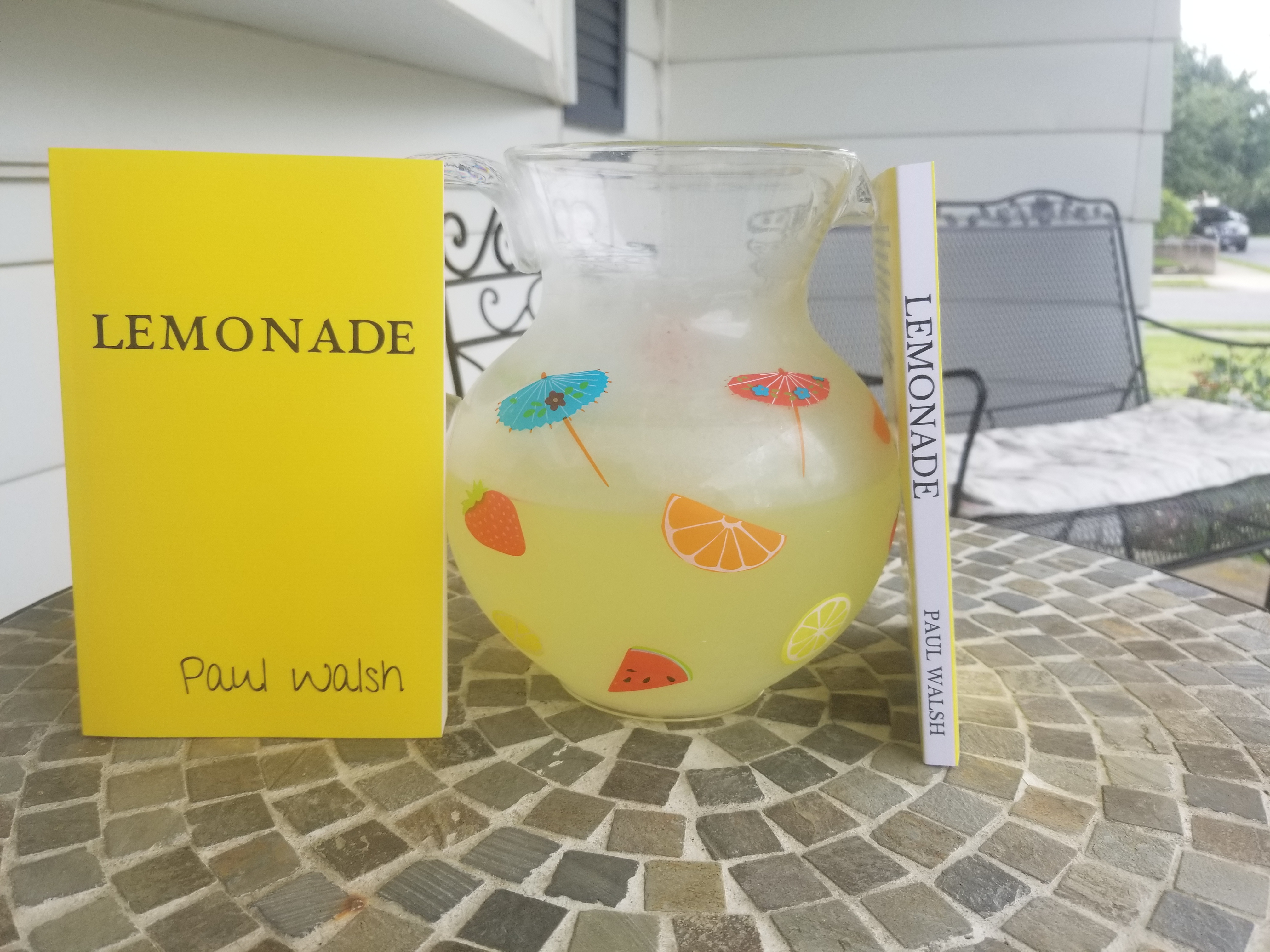
Paul Walsh is also excited to release his novel, Lemonade. This coming-of-age story focuses on a 22-year-old growing up in Bethlehem, PA, as he struggles with the weight of his choices and the integration of his past—the city of Bethlehem facing similar struggles.
“The setting was really important because the city, with its steel stacks, is a great symbol. The steel mills were highly important and helped develop this whole area in the past. Now they're this relic that we should try to remember and apply to our lives by repurposing it, making it into something that always points towards the future. Bethlehem is filled with these images.”
He decided it was time to put his ideas on paper, and, writing over two summers, almost every day from early morning till noon, he drafted Lemonade.
“I believe the best writers we’ve read aren’t the only good writers; they’re just the ones who kept going; they had
“The book is releasing through Barnes and Noble’s self-publishing program. Self-publishing was a challenge; you have to do everything yourself: formatting, editing, designing the cover. The good thing is that you have full control. They'll never tell you to change this character or get rid of this plot point.”
The book has been met with much success so far, with community partnerships established. He has an interview with Southsider Magazine, and Barnes and Noble scheduled him for a meeting and book signing. Lemonade is available through Barnes and Noble pre-order now and releases August 5th.
-Thomas Heasley
Faculty in Focus
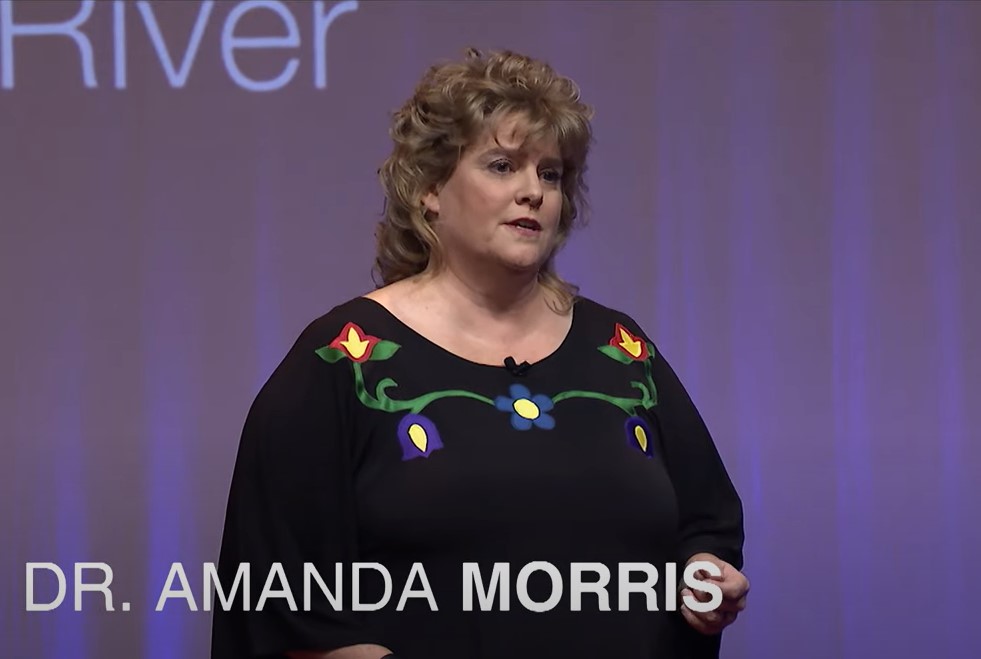
Dr. Amanda Morris: I Am a Settler-Colonizer
Dr. Morris tells the story of indigenous invisibility and presence in an American culture that intentionally erases indigenous peoples. She asks the audience to consider their place in the story, and challenges them to learn a new narrative. Dr. Morris is an Associate Professor at Kutztown University of Pennsylvania and scholar of contemporary Indigenous rhetorics. As a professor, speaker, and writer, Amanda has dedicated her professional life to helping others see the truth of indigenous presence, to dismantling the myths and misinformation about indigenous peoples in the American cultural landscape, and to lifting some of this emotional labor off of her indigenous colleagues who are persistently asked to prove their existence. This talk was given at a TEDx event using the TED conference format but independently organized by a local community. Learn more at https://www.ted.com/tedx
Faculty Five
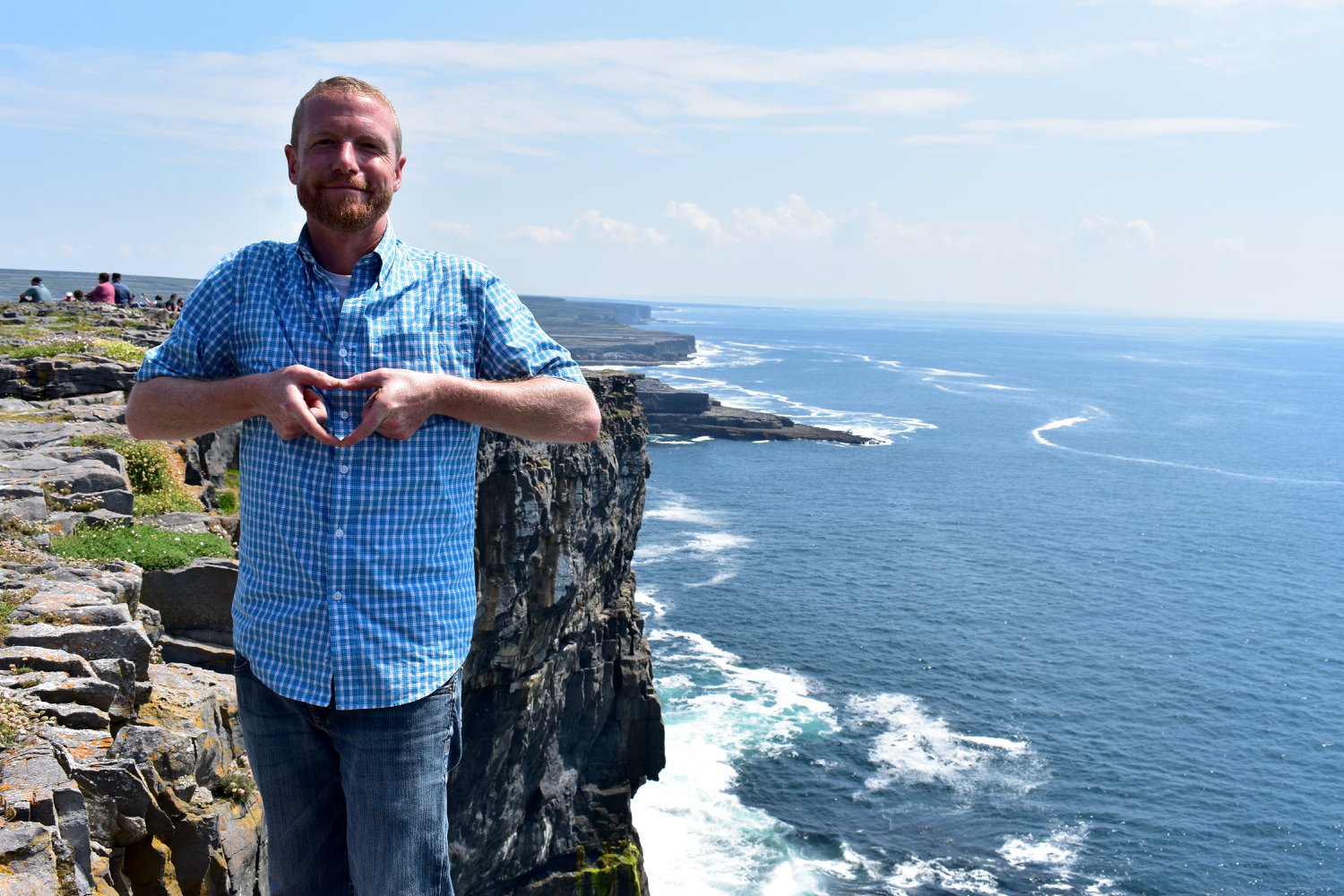
Dr. Andrew Vogel serves as the English Department Chair. His research concentrates on American road stories in the Progressive Era. His current book project, titled Storied Road, examines the way road stories altered American geography at the turn of the twentieth century. Dr. Vogel also writes poetry. His work has appeared in Blackbook Press, The Blue Collar Review, The Lehigh Valley Review, The Heartland Review, Off the Coast, The Clark Street Review, Slant, The Evergreen Review, The Green Hills Literary Lantern, The Listening Eye, Plainsongs, and The Red River Review. Most recently, he led a study abroad course in Ireland in cooperation with Dr. Eric Johnson of the History Department and Dr. Jason Lanters of the Psychology Department.
Q: Where are you from?
A: Columbus, OH
Q: What made you decide to teach?
A: I became a teacher because I love universities. I love the people, meeting them, trading ideas, learning from them, and I love education. By the time I was ready to change my major for the third time, I realized I wanted to work on a college campus, and becoming an educator was the obvious path. I’d have taught anything. I picked English because in English classes you can look into almost anything—politics, aesthetics, social theories, psychology, philosophy, science, and so forth. I came to Kutztown because they were hiring in my field and I quickly learned how great a place this is to study and be. As far as I’m concerned I have the greatest job there is.
Q: Do you have any hobbies?
A: When I’m not traveling or working, I listen to jazz and read as many good books as I can.
Q: What is your favorite book? Genre? Time period? Etc.
A: Wouldn’t pick one, couldn’t pick one, but if I were in a devious Blofeld trap–Don Quixote, no hesitation.
Q: Do you have a favorite project/assignment that you have done with students?
A: I have taught in the KU London program. Creating a walking map of T. S. Eliot’s The Waste Land is so illuminating.






